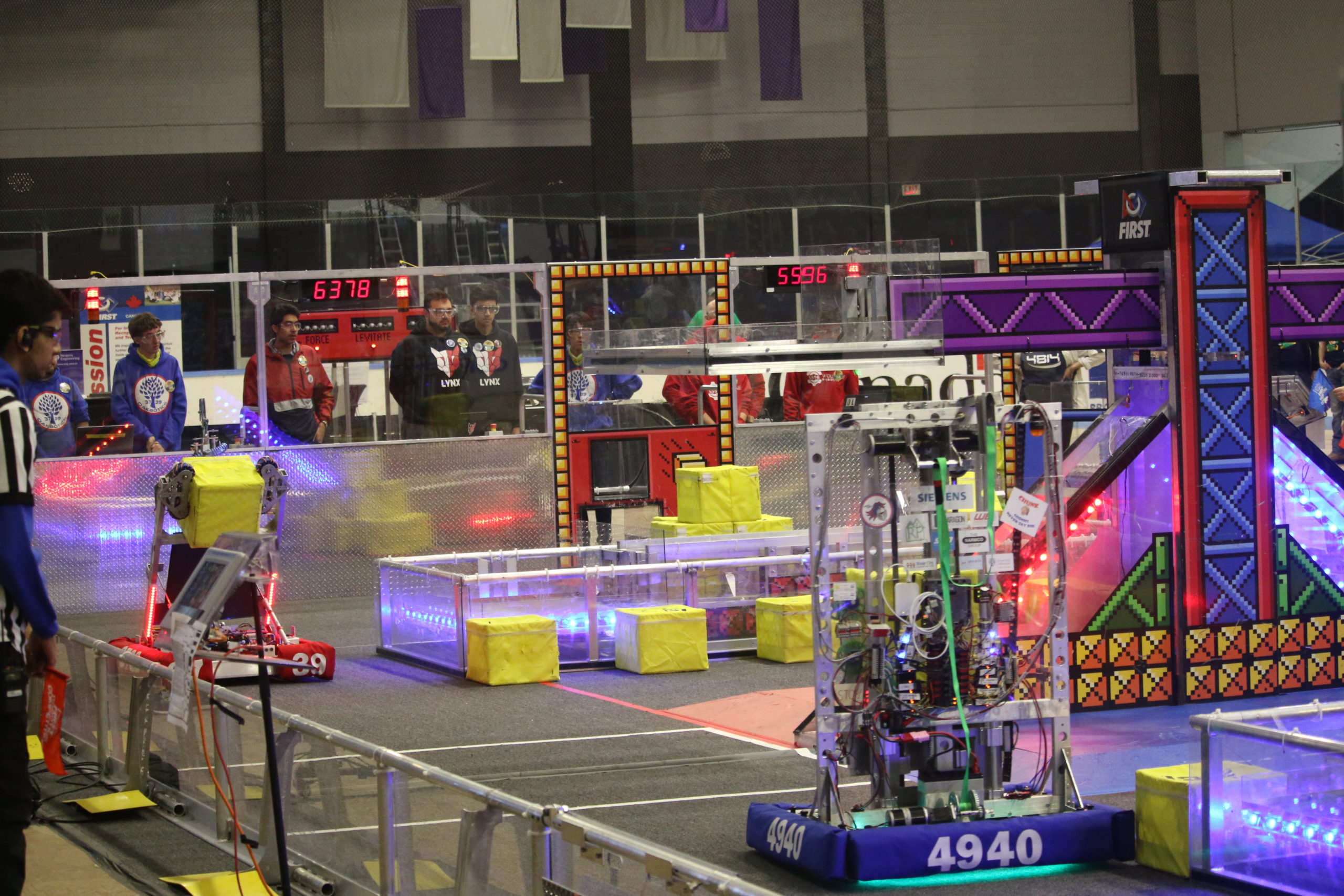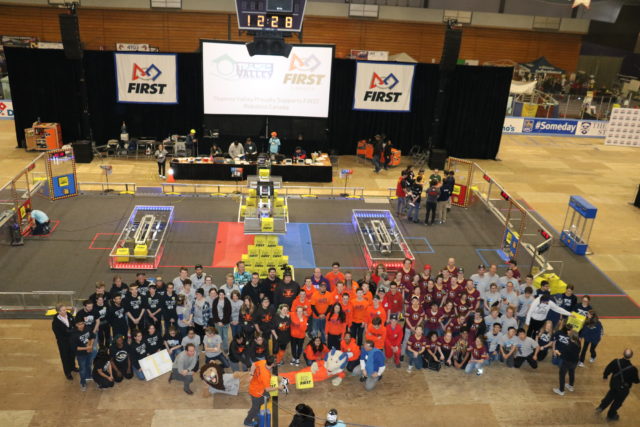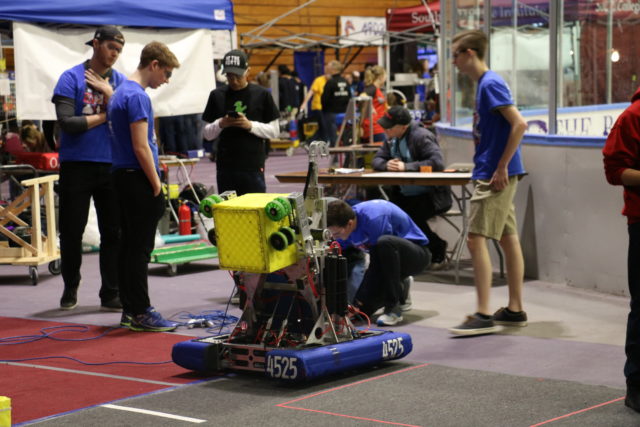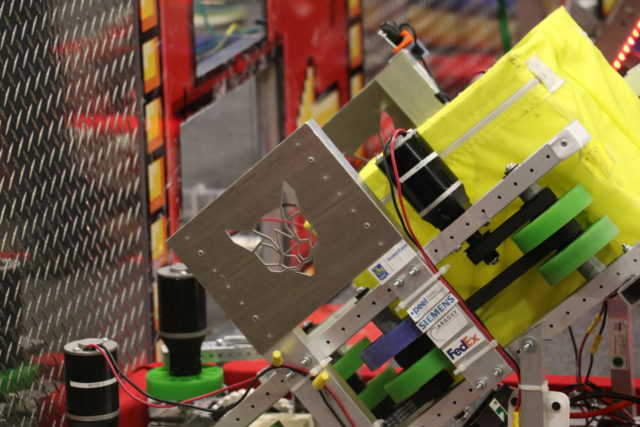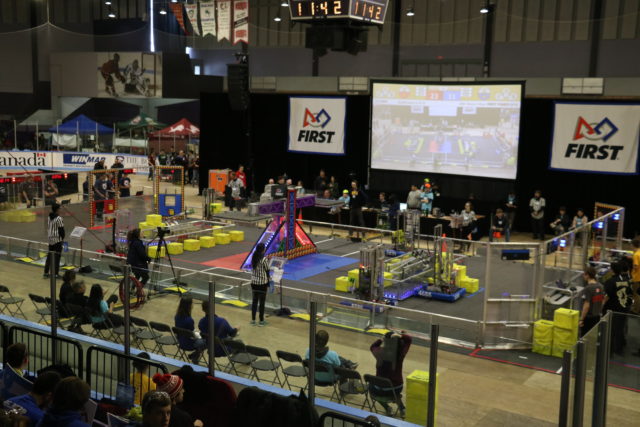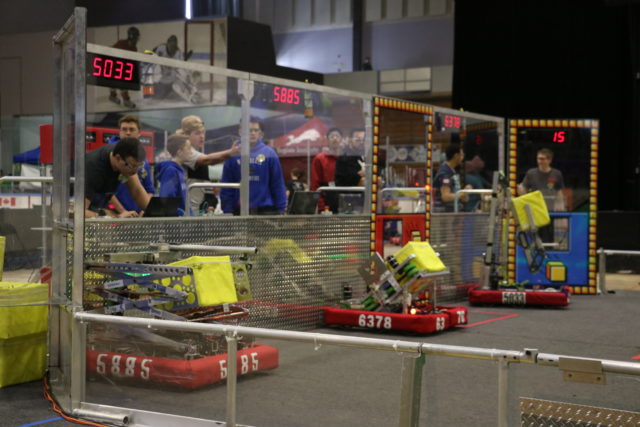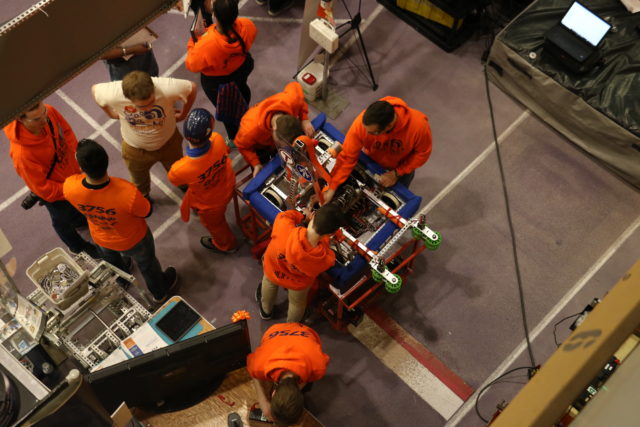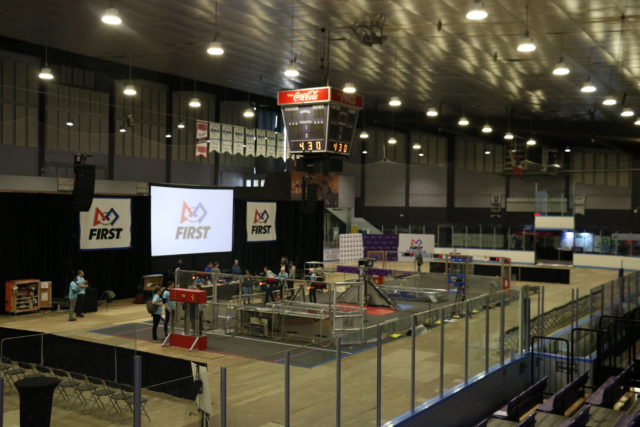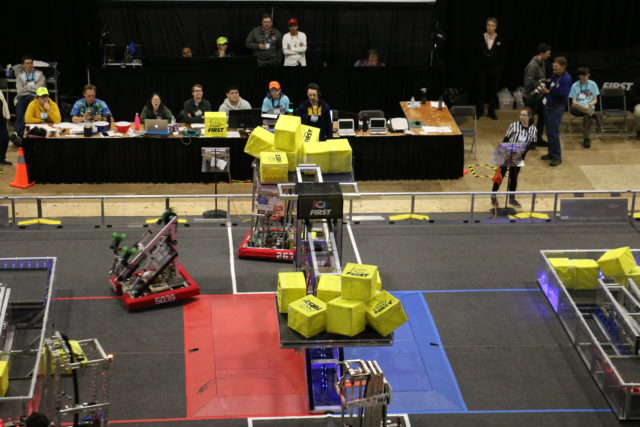-
Headquarters -
7220 Pacific Circle, Mississauga, Ontario, L5T 1V1
-
Year established -
2001
-
NAICS -
Not available
-
Major expansions -
2005
-
Employees -
-
Exports -
N/A
-
Download -
FIRST Robotics Canada
FIRST Robotics Canada is a registered charity that connects elementary and high school students with businesses and post-secondary educational institutions by organizing and coordinating robot-building and robo-sport competitions.
Organization
One of the biggest challenges for manufacturers in Ontario is the lack of qualified science, technology, engineering, and math (STEM) graduates pursuing careers in manufacturing. The problem is not that Ontario is short on bright and motivated students, but that the talent pool containing those with the proper training needed for success in manufacturing is small, while the demand for these individuals is large.
FIRST Robotics Canada (FIRST) is an organization that aims to narrow this gap. At its core, FIRST is a registered charity that connects elementary and high school students with businesses and post-secondary educational institutions by organizing and coordinating robot-building and robo-sport competitions. The two main branches of FIRST are FIRST LEGO League, for elementary school students, and the FIRST Robotics competitions, for high school students.
History
FIRST was established in 2001, and the inaugural FIRST Robotics competition was held at the Hershey Centre in Mississauga in 2002. In 2005, a second FIRST Robotics competition was added in Waterloo and FIRST LEGO League tournaments began for elementary school students across Ontario. Since then, FIRST has expanded to offer regional FIRST Robotics competitions in four provinces (six for LEGO League) in which 250 teams, over 7,500 students, 1,000 mentors, and 2,000 volunteers participate.
Performance
The success of FIRST has depended heavily on stakeholders who organize and facilitate the various competitions. A perfect example is Western University’s Engineering Outreach Program, which coordinates the FIRST Robotics competition in London, Ontario each year. Run primarily by community members, Western faculty members, and Western administration, this group works tirelessly to ensure the annual competition is a success.
The high school students competing in the competition also spend significant time throughout the year preparing. Maral Mohagheghi is currently a student in Western University’s Mechatronics Engineering program, and serves as a mentor to one of the teams competing in London. She notes that the process for students begins when a team is registered sometime before January in the year of the competition. All of the teams then attend a kickoff event in London, where they are presented with their kits (parts they can use to build their robots) and the rules of the contest.
After the kickoff event, the teams have six weeks to build their robots. As Mohagheghi can attest, this is a very busy time for the students, who are doing extensive work on their robot three to four nights per week after school. When the six weeks are up, each team seals its robot in a bag that cannot be opened until the competition weekend.
The competition is a weekend-long affair where everyone’s hard work comes together. The students’ robots must compete in a variety of events, which in the past have included throwing frisbees, stacking boxes, shooting basketballs, and other interesting games. For most of the events the robot is operated by a student team using some type of control mechanism (e.g., old gaming controller, joystick, etc.), but there is also an autonomous contest where the robots must accomplish tasks without any human intervention. At the end of the weekend a winner is crowned and other awards are presented.
Businesses, particularly manufacturing companies, represent another group of stakeholders that plays an important role in the FIRST competitions. Manufacturers help mentor and sponsor teams, and volunteer their time to assist with logistics both in the lead-up to the competition and during the competition weekend.
Mentorship is key because students must obtain an adult mentor to coach their team in order to register in the competition; this could be a teacher, past FIRST Robotics competitor (like Mohagheghi), manufacturing employee, or someone else who might have experience in robotics. Moreover, some manufacturing companies have allowed students to use their facilities to cut parts and assist with the general production of their robots. Those who have donated their time and money to the competition include BOS Innovations, Armo Tool, CenterLine, Valiant TMS, and many more.
Benefits of FIRST Robotics
First and foremost, FIRST Robotics is a great experience because of how much fun everyone has throughout the entire process. As Mohagheghi explains, the students love getting hands-on experience with fascinating technology and seeing the amazing capabilities of all the different robots at the competition. They also enjoy being part of a team and working to achieve a common goal with their teammates. However, tournament organizer Joanne Moniz notes that the volunteers have just as much fun as the students, especially on competition weekend. Volunteers are heavily invested and can often be seen running across campus on the big day to assist with last-minute changes to a robot or scout their teams’ competitors.
Another main benefit of FIRST, from the perspective of the manufacturing industry, is that it generates an interest in the STEM subjects among high school students. A longitudinal study by FIRST Global (the global organization of which FIRST Robotics Canada is a branch) found that a student who participated in a FIRST program is roughly two to four times more likely to be interested in majoring in computer science, engineering, or robotics at university than a student who did not. Furthermore, it does not seem to be true that this effect is solely because the students participating in FIRST were always interested in these subjects. Anecdotally speaking, Mohagheghi has several friends who were initially unaware of what they wanted to study at university, but went on to pursue STEM degrees as a result of their FIRST experiences. This news is very encouraging for Ontario manufacturers, who are constantly looking for qualified applicants in these areas.
A final high-level benefit of FIRST, and particularly the First Robotics competition at Western, is that it brings together students, educational institutions, and manufacturers for the benefit of all three groups. The students get to learn about what kinds of post-secondary educational programs are available through their interactions with Western staff members, as well as the real-world career opportunities in manufacturing through their work with manufacturing stakeholders.
Educational institutions are able to showcase their programs with the hope of encouraging more students to apply. Moniz also notes that FIRST fosters a closer relationship between educational institutions and manufacturing companies in the area. For example, BOS Innovations enjoyed the 2018 competition so much that it signed up to be the title sponsor for the next year’s competition the day after the event was complete. Having a close relationship between schools and manufacturing companies is crucial to designing curricula that reflect manufacturers’ needs.
From the manufacturers’ viewpoint, FIRST allows them to interact with future employees and leaders in the industry. Spreading awareness about a company and the types of opportunities there is an effective way to attract future talent. Even more importantly, FIRST gives manufacturers the opportunity to transfer some of the knowledge they have acquired through years of industry experience to students, which improves the future of Ontario manufacturing.
Prospects
Both Moniz and Mohagheghi expect FIRST to continue gaining momentum and spread to more schools across Ontario and Canada. One specific direction the organization will take is to increase its emphasis on inspiring women to pursue engineering. The most recent competition at Western had a strong focus on this aim, with a special event on one of the competition days for all of the female mentors and students. FIRST as a whole is expected to take on similar initiatives in the years to come.
Another interesting trend for the future will be incorporating new technologies into the FIRST Robotics competitions. Each year, new technologies are added to the students’ kits, which improve the robots’ effectiveness and capabilities. With Industry 4.0 sweeping through Ontario, FIRST will likely incorporate things like sensors, connectivity, and big data into the robots, making them even more impressive.
For more information about FIRST Robotics Canada, visit their website.
Published: July 11, 2018
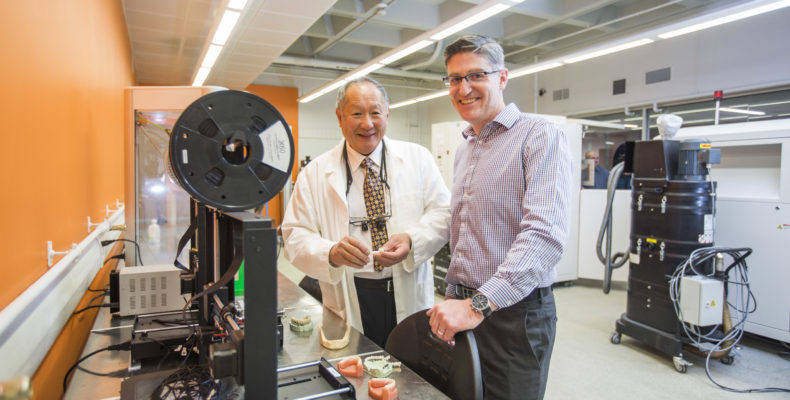
Southern Ontario Network for Advanced Manufacturing Innovation
The Southern Ontario Network for Advanced Manufacturing Innovation (SONAMI) is a network of post-secondary research institutions that have come together, in an effort to grow the quality and quantity of applied research innovation in the Southern Ontario advanced manufacturing cluster.
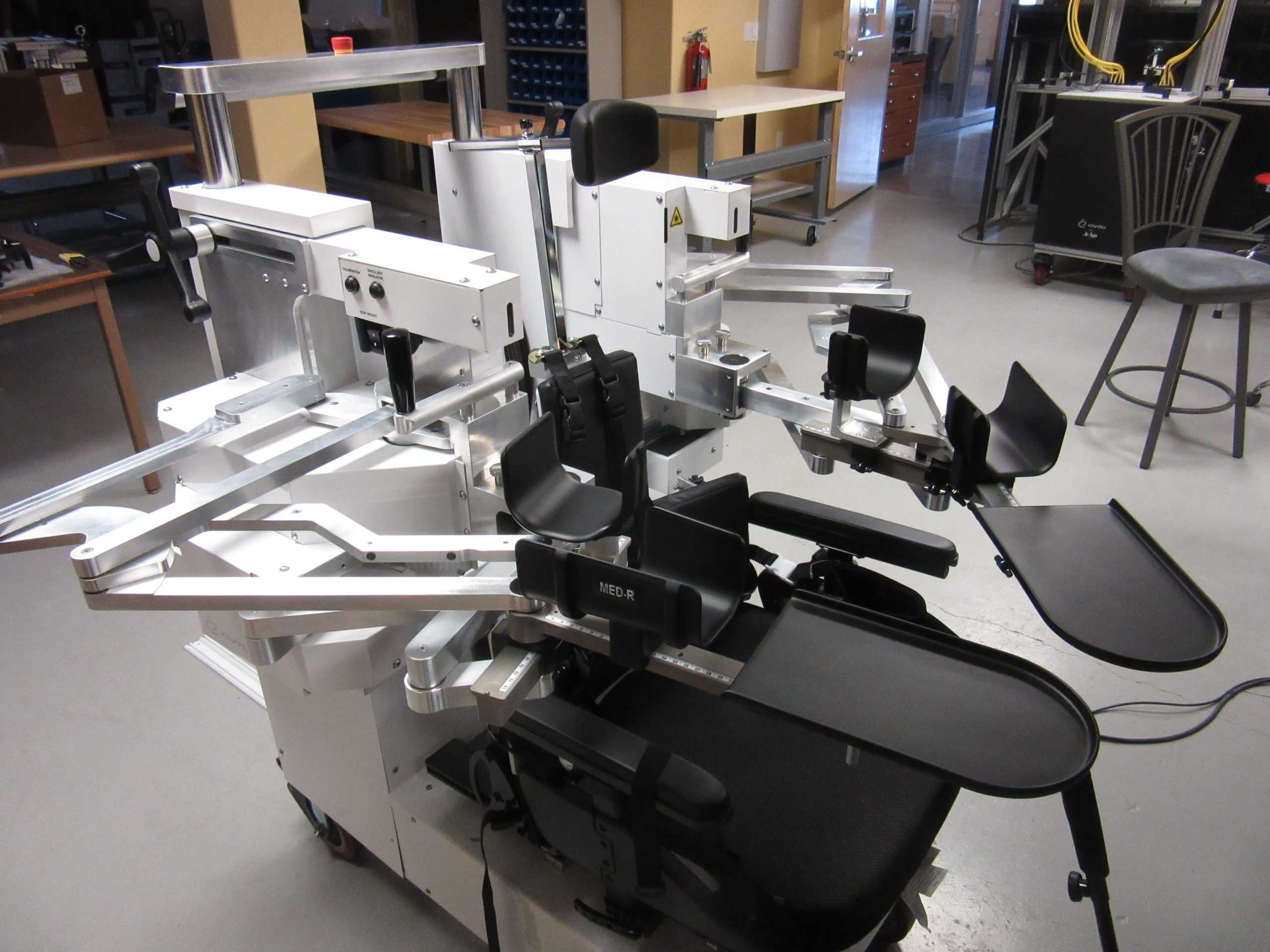
Kinarm
Kinarm is transforming the assessment of brain injuries by putting cutting-edge robotics technology into the hands of neuroscientists and clinician-scientists around the world.
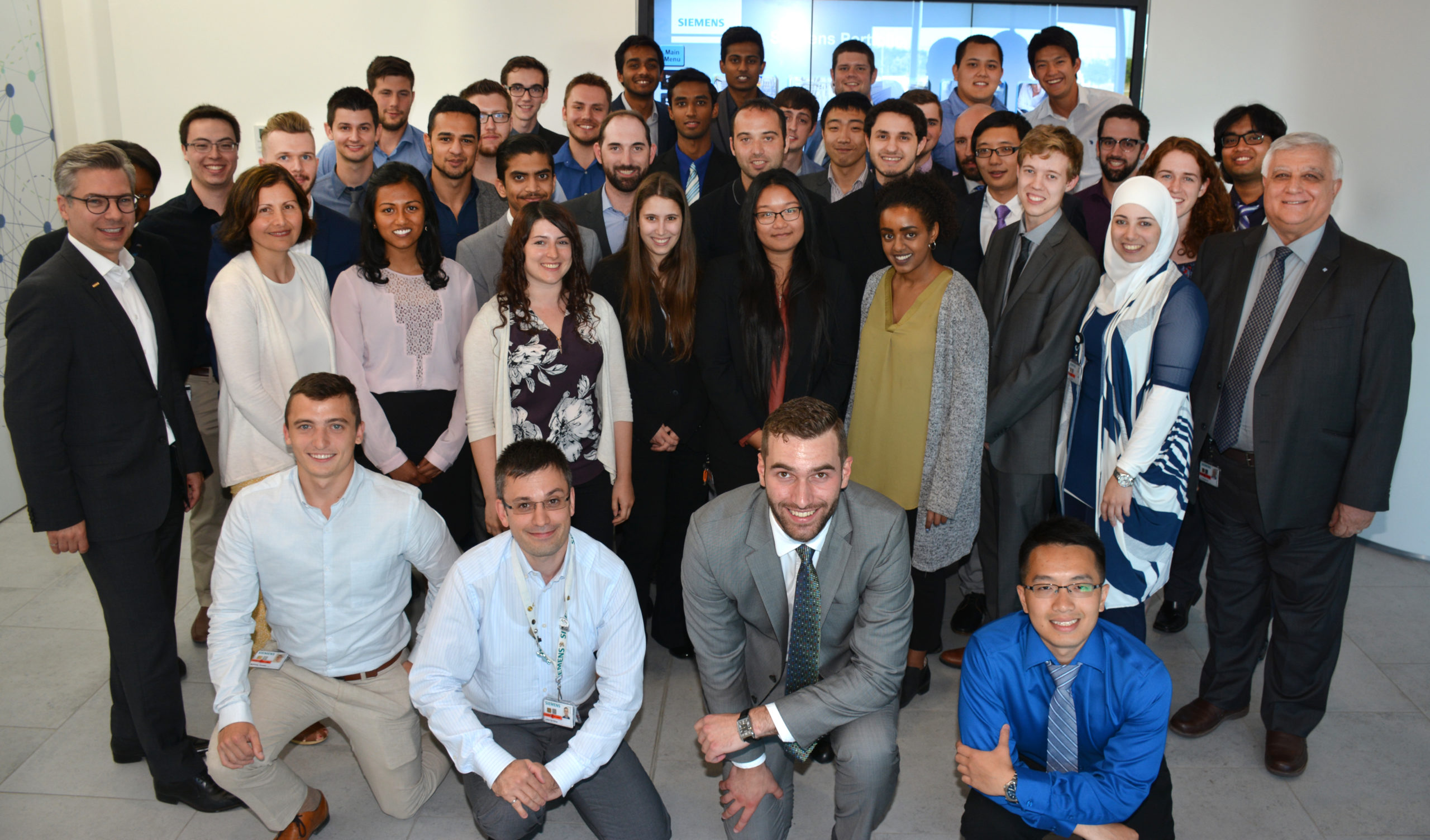
Siemens Canada Engineering and Technology Academy (SCETA)
The Siemens Canada Engineering and Technology Academy (SCETA) is a unique initiative designed to equip engineering and engineering technology students in Canada, and Siemens’ own engineers, with the educational and professional foundation required for successful careers. The goal of the Work Integrated Learning Program (WILP) is to educate post-secondary students on Industry 4.0 concepts such as electrification, automation, digitalization and cloud technology.
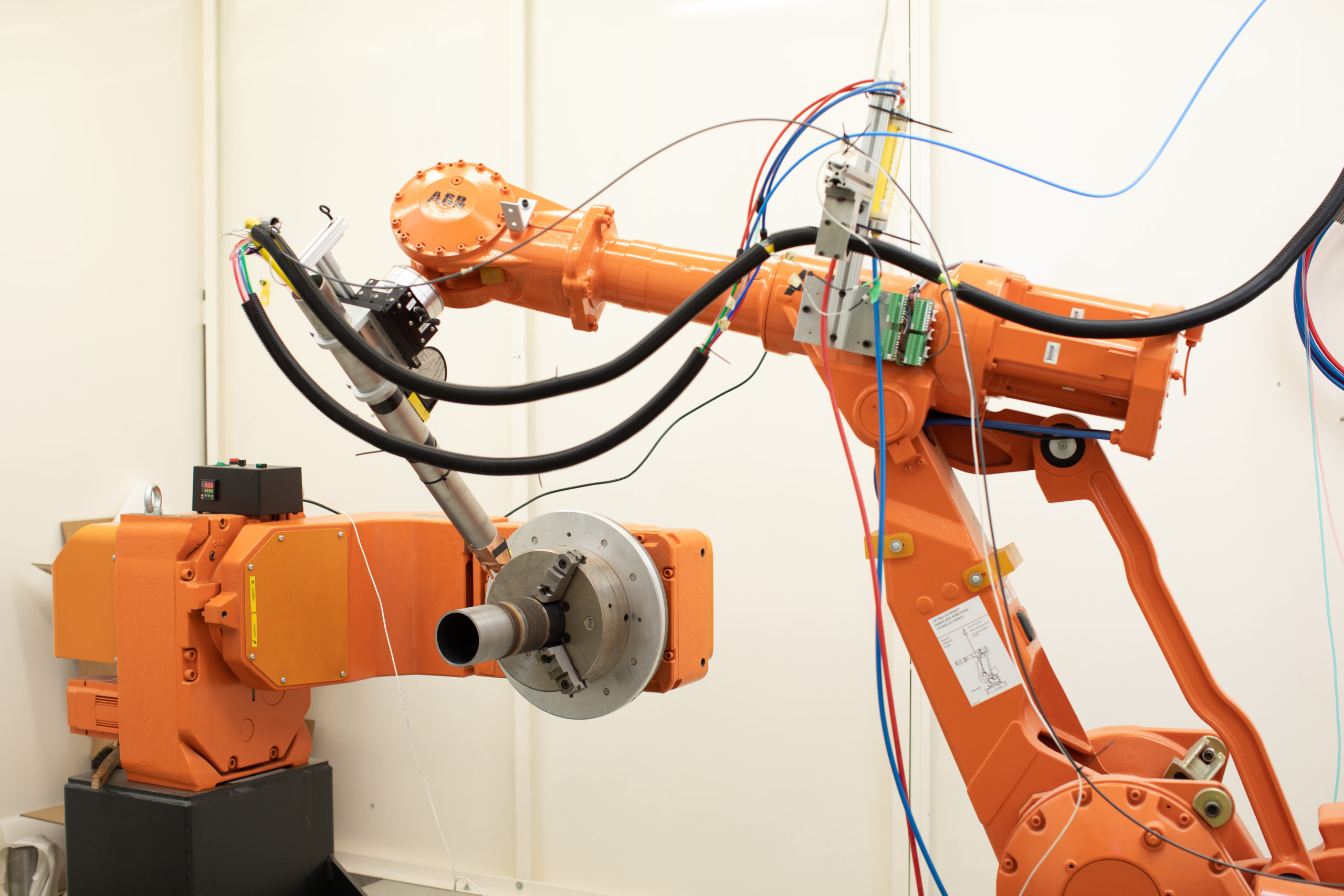
National Research Council – London
The NRC London facility is part of NRC Automotive and Surface Transportation Research Centre. The organization aims to support the Canadian automotive industry.
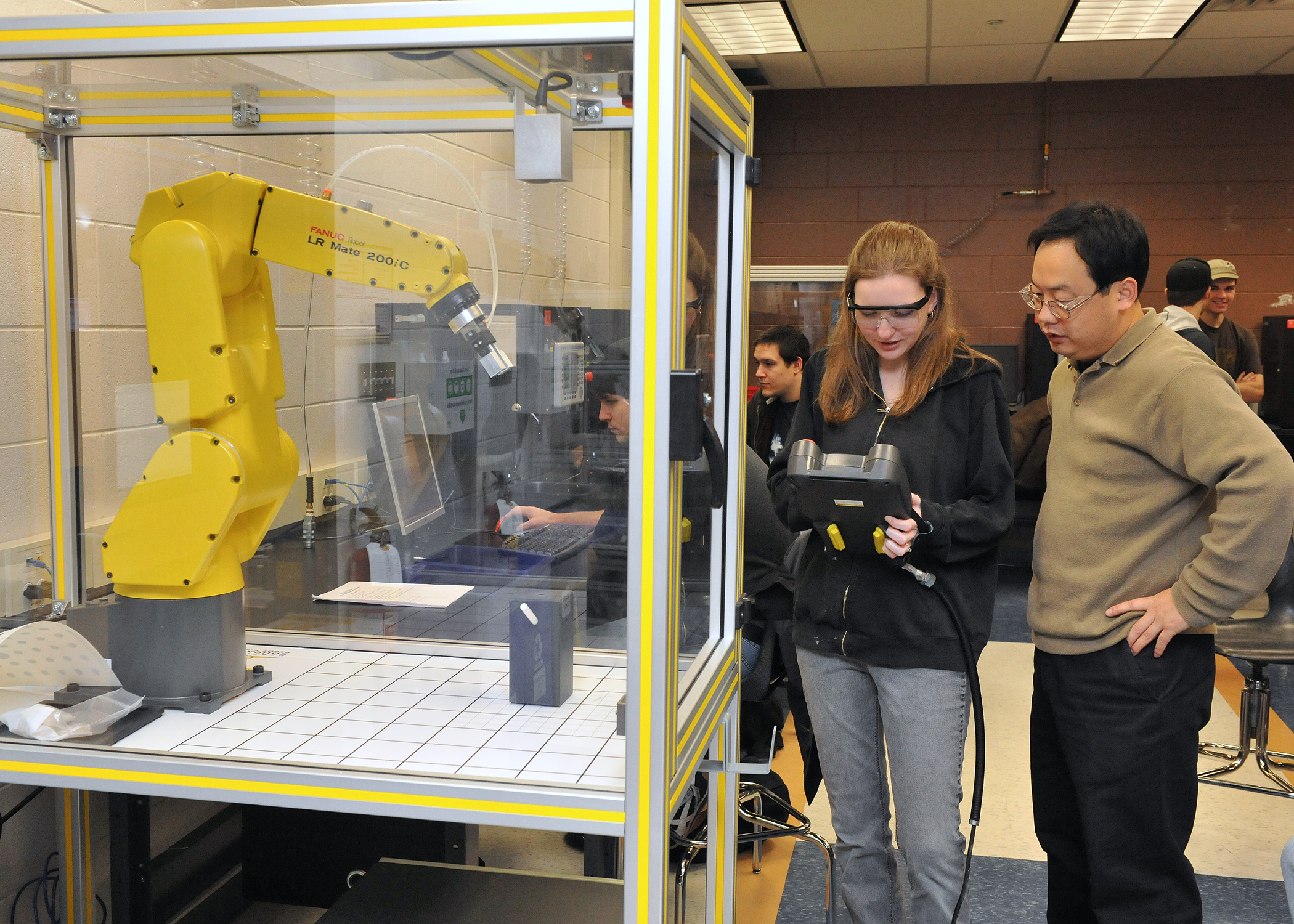
Fanshawe College
Fanshawe’s School of Applied Science and Technology emphasizes the technical skills required for workplace productivity.
